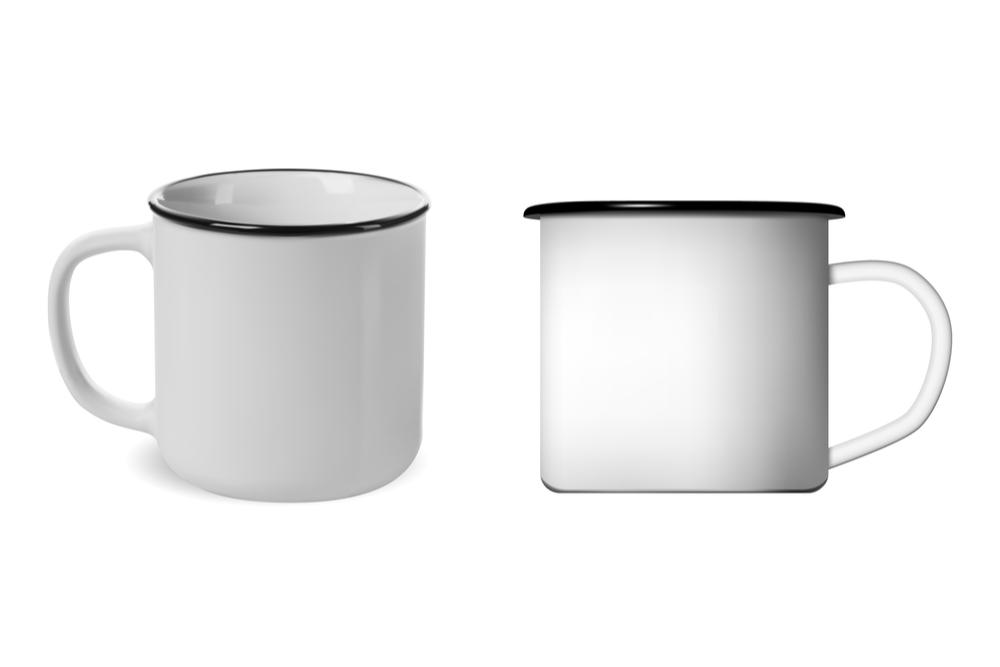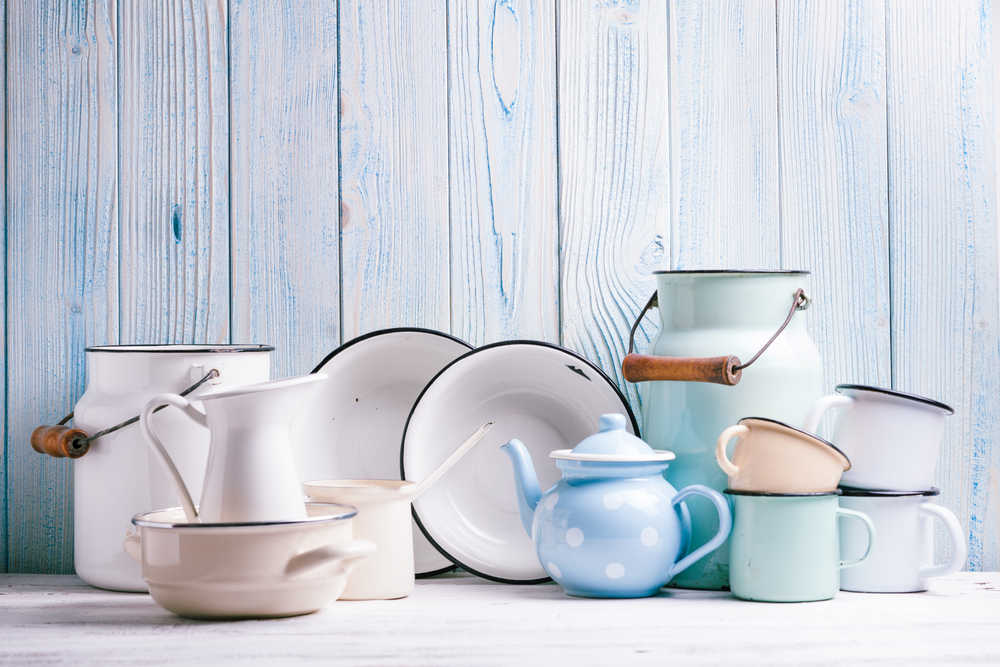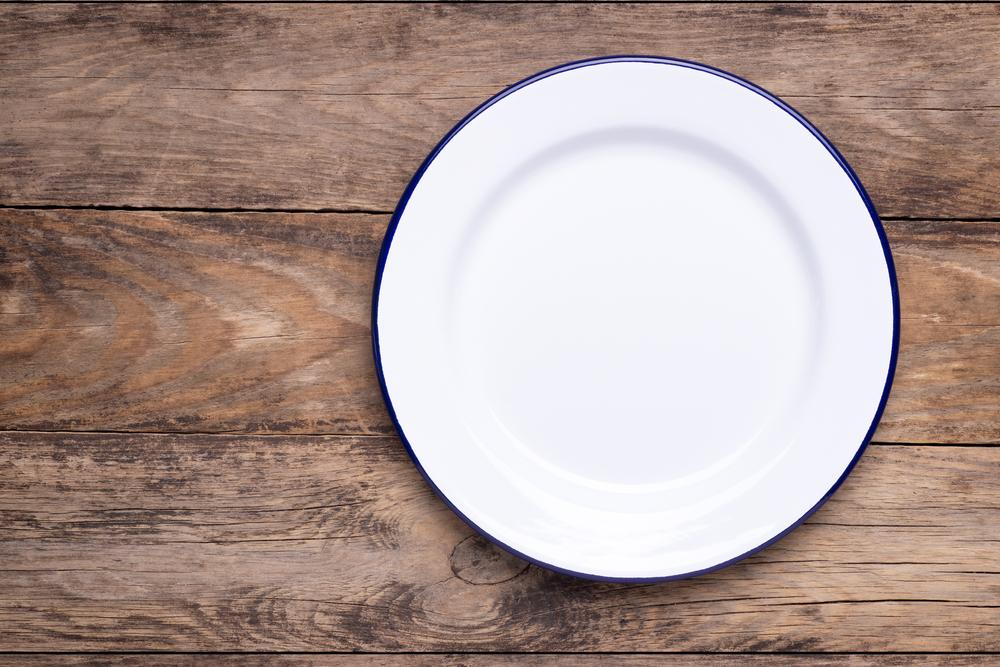Enamelware is cookware made from metal or aluminum coated with enamel. Enamelware is a popular choice for cooking and serving food because it is durable, non-porous, and easy to clean.
However, one common question about enamelware is whether or not it is safe to use in the microwave.
Enamelware is metal coated with enamel or porcelain lining. Enamel is a form of glass fused to the metal surface at high temperatures. This process creates a smooth and elegant surface resistant to scratching and staining.

Enamelware Mugs - Keep Them out of the Microwave
There are many benefits to using enamelware. At the same time, using a microwave is one of the most significant conveniences to date. So let's see if microwaves and enamelware are a good match.
There has been a lot of research to better understand how best to care for this type of cookware and how to reheat food properly. This article will explain whether or not enamelware is safe for microwaves.
A Polish Enamelware Company
Enamelware should not be put in the microwave because the high temperatures can cause the enamel to break down, which releases harmful chemicals that can get into your food.
Additionally, microwaves can cause the metal underneath the enamel to heat up and potentially cause a fire since heat reflects off the metal.
There are two main concerns when using enamel cookware in the microwave.
The first is that microwaves can cause the enamel to crack or chip. This happens because the microwaves heat the metal surface of the cookware, which then transfers that heat to the enamel coating.

Enamelware Doesn’t Resist Heat Very Well
The enamel is not as heat-resistant as the metal. Therefore, it can break down over time with repeated exposure to high temperatures. It creates a problem because it can put tiny enamel pieces into food.
The second concern is that microwaves can cause the metal surface to heat up and potentially create a fire. Microwaves cause the electrons in the metal to move around, which generates heat. If there is enough build-up of heat, it could cause a fire.
A worst-case scenario is that the cookware could cause an explosion.
There are three ways to tell if an enamel dish is microwave-safe. One way is to look for a label on the bottom of the container that says "microwave-safe."
Another way is to place the dish in the microwave and see if it gets hot. If it does, it's not safe to use in the microwave. If the dish has any metal on it, such as a metal handle, don't put it in the microwave.
If still unsure after trying these options, try heating the bowl and a cup of water for one minute. If the bowl becomes hot and the water stays cool, it is not microwave-safe.
Keep in mind that most enamelware and its packaging will have a label on the bottom that says "microwave-safe."
Enameled steel cannot go in the microwave because the high heat can cause the enamel to break down and release harmful chemicals. The same hazards exist in cast iron as in regular metal.

Enamelware Plates Don’t Belong in the Microwave
The same rule applies to enamel mugs and other types of cups. Check the cup for "microwave safe" labels. Do not microwave it if it has a metal handle or any other metal components.
Let's talk about the different types of enamel cookware. There are two main types of enamel cookware:
This type of cookware consists of metal with an outer shell of porcelain enamel. Porcelain enamel is the standard and most used form of enamel cookware.
Cast iron enameled cookware combines cast iron with the porcelain outer shell. Enameled cast iron cookware is very heavy and durable. It is also slow to heat up and cool down, so it retains heat well.
Always ensure you are buying from reputable vendors as cheaper pots can have high levels of lead and calcium.
Falcon enamelware typically gets produced in the UK. It is comprised of powdered glass that gets bonded to heavy gauge steel. Falcon enamelware has been around since the early 1900s and is known for its durability and classic design.
Today, Falcon enamelware is still made in the same factory in England using the same techniques for generations.
Enamel cookware is technically considered dishwasher safe but you probably shouldn’t think about putting enamel cookware in the dishwasher. It is important to note that the high temperatures of the dishwasher can cause the enamel to break down over time. Additionally, the detergents in the dishwasher can also cause the enamel to deteriorate.
To prolong the life of your enamel cookware, hand wash it with a mild detergent.
Many individuals prefer enamelware because of how easy it is to clean and maintain. Additionally, enamelware does not absorb flavors or odors, so it is an excellent option for those looking for neutral-tasting cookware.
When using enamelware, it is essential to avoid using metal utensils as they can scratch the surface. Instead, opt for wooden or plastic utensils.
It is also important to avoid putting enamelware in the dishwasher as the high temperatures can cause the enamel to break down.
If possible, use medium or low heat or wash it with warm water and a mild detergent. Avoid harsh chemicals or abrasive sponges as they can also damage the enamel.
When it comes down to reheating food, use the oven or the stovetop as microwaves can cause the enamel to break down. Enamel pots can withstand oven temperatures up to 500 degrees Fahrenheit.
The only exception to this is Le Creuset enamelware. Le Creuset enamelware comes made with a high-quality, specially formulated enamel that can withstand the high heat of the microwave.
It can also withstand ovens at 500 degrees and sit safely in the freezer, refrigerator, and dishwasher. However, using them in the microwave for prolonged periods causes the handles to get hot.
Other than Le Creuset, most enamelware should not go in the microwave because of the high heat. Le Creuset stands out from other enamel cookware because of its durability, ability to withstand high temperatures, and sleek and colorful design.
Le Creuset is the best option if you are looking for enamel cookware that can go in the microwave. Otherwise, it is best to use the stovetop or oven to reheat food.
Ajkl dfajkld f djkal fdsaj kl
